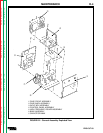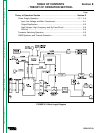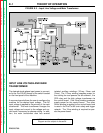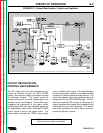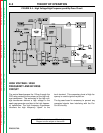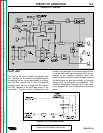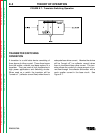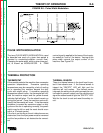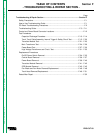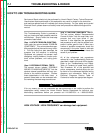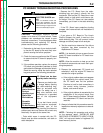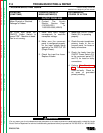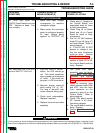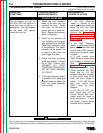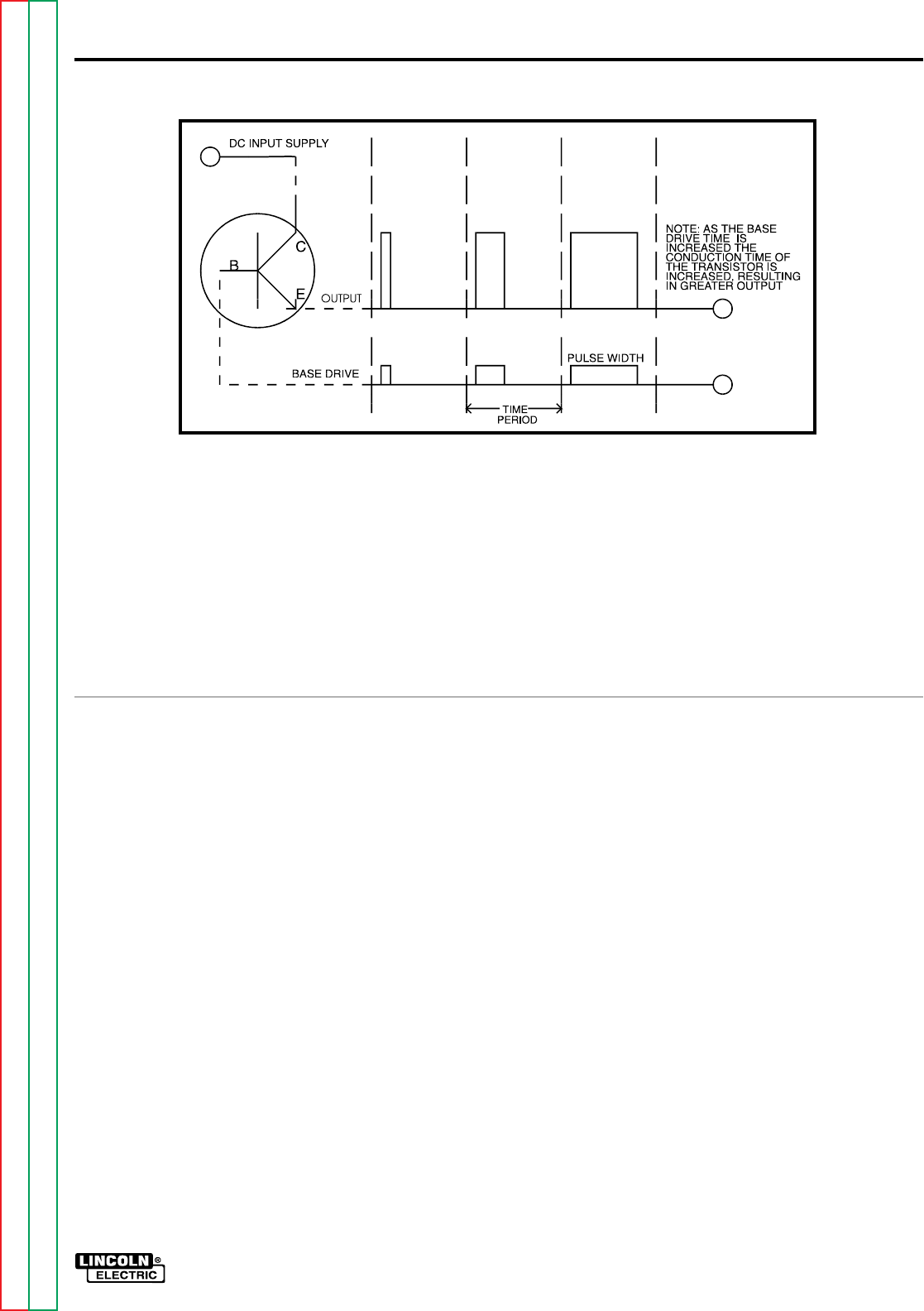
Return to Section TOC Return to Section TOC Return to Section TOC Return to Section TOC
Return to Master TOC Return to Master TOC Return to Master TOC Return to Master TOC
THEORY OF OPERATION
PRO-CUT 60
E-6
PULSE WIDTH MODULATION
The term PULSE WIDTH MODULATION is used
to describe how much of a given time period is
devoted to conduction(collector current flow).
Changing the pulse width, within a given time peri-
od, is known as MODULATION. A PWM
control signal is applied to the base of the transis-
tor module to "turn on" the device. Varying of this
pulse width controls the output current of the
machine. See Figure E.8.
THERMAL PROTECTION
THERMOSTAT
A thermostat protects the machine from excessive
operation temperatures. Excessive operating
temperatures may be caused by a lack of cooling
air or operating the machine beyond the duty
cycle and output rating. If excessive operating
temperature should occur, the thermostat will dis-
able the machine output and the yellow thermal
indicator light will glow. The fan should remain on
during this period. Once the machine cools suffi-
ciently the thermostat will reset. If the thermostat
shutdown is caused by excessive output or duty
cycle and the fan is operating normally, the power
switch may be left on and the reset should occur
within a 15 minute period.
If the fan is not turning or the air intake louvers are
obstructed, then the input power must be removed
and the fan problem or air obstruction be correct-
ed.
THERMAL SENSOR
There is a thermal sensor in the torch head to pro-
tect it from abusive use. If the thermal sensor is
tripped the "SAFETY" LED will light and the
machine will not function. This thermal sensor
interrupts the safety circuit which prompts the con-
trol board to prevent output from the machine and
signal the status board to light the "SAFETY" LED.
Wait for the torch to cool and reset the safety cir-
cuit.
FIGURE E.8 - Pulse Width Modulation



